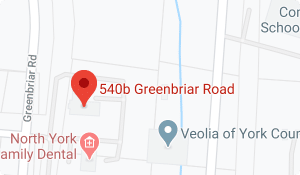The Future of Computer Keyboards: Will They Still Exist in the Next 20 Years?
Computers played a crucial role in the past and are still an essential component of life today. Until recently, there have been bottlenecks to technology, inhibiting technological developments. The world has experienced changes in computing power, storage speed, and mobility, which have shaped the industry and helped drive it forward. The result has been the incoming of faster machines.
However, innovation seems to be lagging in one area of computer development. There is a lack of progression in the field of computer keyboards, raising the question about their future. Will keyboards still exist in the next 20 years, or will there be a better innovation that will take over typing?
The Problem with Computer Keyboards
The question is not just a philosophical one, but one with significant commercial applications. According to a professor in Interactive Systems Engineering, Peter Ola Kristensson, desks will be free from all forms of computer hardware in the future. Phones, laptops, and certainly keyboards, will be missing. He also predicts that there will be a dramatic move from restrictive and un-ergonomic keyboards to help people affected by back pain, repetitive strain injury, and carpal tunnel syndrome.
These problems have become prevalent in the modern workspace and can be attributed to the use of the keyboard. Recurring pain in the forearms, tense muscle necks, and back problems are other problems millions of people that rely on computers for most of their work know too well. The repetitive strain syndrome (RSI) is not a modern problem and can be traced back to typists who existed decades ago. Since the increasing use of computer keyboards in the 1970s, it’s astonishing that the condition is yet to be acknowledged as an occupational disease in industrialized countries.
The RSI syndrome shows that specific postures and movements while using computer keyboards are not beneficial to the health of computer users. Keyboards affect the movement mechanics of fingers, forearms, and hands. While there has been an increase in the number of ergonomic and inexpensive computer mice, improvements in computer keyboards have been restrained by international conventions. Most people worldwide are so used to the Qwerty keyboard design that it’s almost impossible to realize its drawbacks.
A Problem with Several Possible Solutions
In his forthcoming research paper, Kristensson presents a possible solution that could mark the end of the computer keyboard. Using a head-mounted piece of hardware, researchers project a virtual screen and a virtual keyboard on which the participants “type.” Their fingers don’t touch anything, but a depth-sensor device detects their movement. The sensor also senses how deep the users press into the virtual surface.
However, such virtual keyboards are bound to present several errors. They come with a high level of imprecision, which results in many mistakes caused by hitting a virtual keyboard rather than a real one. However, the researchers corrected this by creating a model for the most commonly typed words. They trained the program to identify the most common letter combinations through machine learning, similar to what is used in predictive text.
The speed of learning to type virtually for the users was impressive, given that people remember the Qwerty keyboard very well. According to the research, a virtual keyboard can be completely blank, and people will still type with precision.
However, this approach to replacing the physical keyboard still has a shortcoming. If the aim is to remove the keyboard, why not do away with the need to move the fingers as if they’re touching a keyboard? Technology that allows people to type by simply looking at letters exists, but it is slow and straining, as it is still in developmental stages. Users can use a combination of eye-tracking and prediction to type. They don’t have to dwell or let their eyes rest on intervening letters, as sliding their gaze from letter to letter is enough to do the work.
The Magic Leap
Another proponent of trying to change the functionality of the computer keyboard is Magic Leap. This company has delivered something that could change how people use computers, but the product is not quite comprehensively defined. The device, known as Magic Leap One, is supposed to help users interact with programs in the real world. This eliminates the need to click through piles of folders and windows on their screens.
The device is a mixed-reality headset that brings together real life with the virtual. It can overlay CG creations on your surroundings, and this capability shows a promise for a world beyond the keyboard. The company envisions a world where computing is devoid of TVs, laptops, and phones. However, it’ll be a while before the device has the full attention of the public, convincing them to take a detour from how they interact with their gadgets.
Voice Technology
The world is also experiencing a shift towards voice input into the computer. This is evidenced by the many technologies currently available like Google Assistant, Apple Siri, Amazon Alexa, and Microsoft Cortana.
While these technologies could convince the world to do away with keyboards, the written text will remain superior in some contexts. The written text is more confidential than voice input, especially when working in public spaces like the library or coffee shop. It’s also the best input method for long, elaborate text like blog articles or books that require a high level of precision. Voice input may also not cater to graphical presentations, drawings, and sketches.
Final Thoughts
The world anticipates a shift from the physical computer keyboard to something different and unique for computer input. Many companies and researchers have tried to make this change possible. However, most of their innovations have shortcomings that still make the keyboard the preferred input method.
All hope is not lost, and while the keyboard seems to be here to stay, only time can tell what the future will bring. Whether voice input or virtual keyboards will win the day, the move will be a much-anticipated one. If you’d like to keep up with this and more IT-related news, check out our TREYSTA News and IT Education page. Or contact us.





